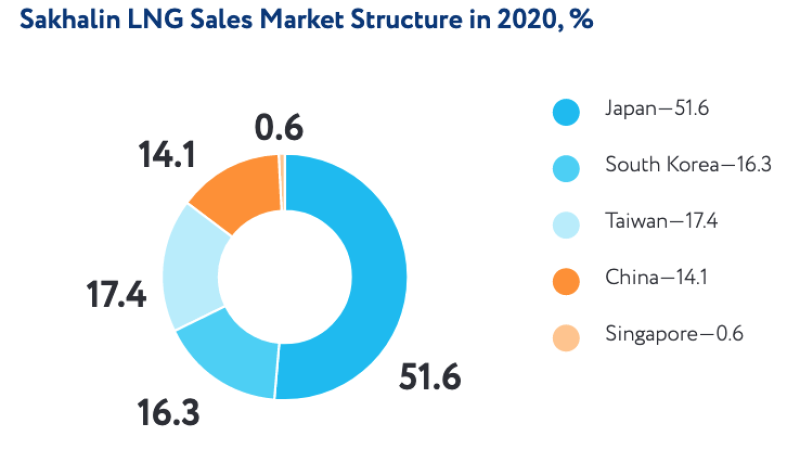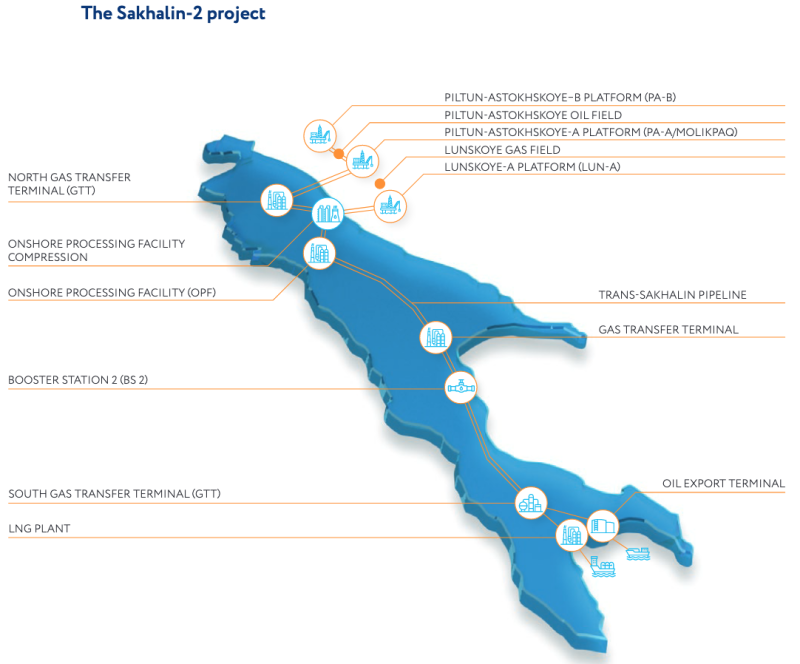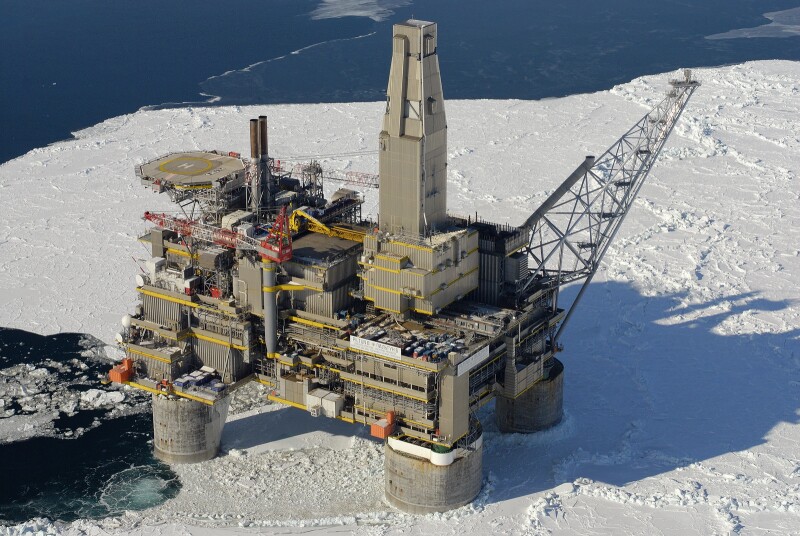Russian President Vladimir Putin has signed a decree that could be interpreted as a backdoor move to nationalize the Sakhalin-2 offshore upstream oil and gas project and related LNG facilities as Moscow seeks to block Shell, and possibly Japan’s Mitsui and Mitsubishi from selling their stakes to other international players.
Kremlin spokesman Dmitry Peskov denied during a news conference on 1 July that the new Sakhalin-2 ownership regime outlined in the decree is in fact nationalization.
But the presidential order signed on 30 June does direct the Russian government to take control of all shares, rights, obligations, and property currently held by the Bermuda-registered Sakhalin Energy Investment Company Ltd. The government will then vest those interests in a newly formed Russian limited liability company, Gazprom Sakhalin Holding, which will become the project’s new operator.
Sakhalin-2’s current partners will be offered new shares proportional to their old stakes and they would have a month to decide whether to accept the new terms. Even if the former partner agrees however, the government could refuse and sell the foreign-held stakes within a 4-month period to a Russian buyer.
Environmental Audits Could Reduce Final Payouts
Proceeds from the sale would be placed in a special account opened in the name of the previous foreign shareholder and the funds frozen while the Russian government conducts environmental, technical, or other audits to assess possible damages that would reduce the final payout.
The decree justifies the move saying that the Russian state invested in production and transport infrastructure, as well as the LNG plant, and under the terms of the production-sharing agreement (PSA), these facilities become the property of the state, according to Russia’s business daily Kommersant.
The Russian government will not be a founder, nor will it participate in the new company, Russia’s TASS news agency reported. But under the decree, only a Russian legal entity can buy shares in the new company, the Moscow Arbitration Court will adjudicate all disputes, and the government will control any sale or transfer of shares.
Russia’s gas monopoly Gazprom, which is majority-owned by the Russian government, currently holds a controlling 50%-plus-one-share stake in Sakhalin Energy and will hold the same in Gazprom Sakhalin Holding Ltd.
Shell’s Talks with India, China Now Foiled
Shell has a 27.5% stake (minus one share) in Sakhalin Energy and has been in talks with prospective Indian companies and Chinese firms, including CNOOC, CNPC, and Sinopec to sell its shares after the UK supermajor announced it would be closing down all of its Russian operations because of the conflict in Ukraine.
The project’s Japanese trading house partners Mitsui (12.5%) and Mitsubishi (10%) have been more hesitant about leaving, however, despite their government’s support of sanctions against Russia.
Russia’s Kommersant reported that the head of Tokyo Gas, Takashi Uchida, had said in April that Japan's withdrawal from the Sakhalin-2 project would lead to supply disruptions in cities, and it would be difficult to quickly find an alternative to Russian LNG.
“It is physically impossible to completely replace Russian gas with spot supplies,” Kommersant quoted Uchida as having said. Sakhalin Energy supplies 8% of Japan's LNG needs.

The Financial Times (FT) quoted a Japanese government official as saying “we’re staying” even if the new consortium is required to pay taxes not previously levied under the PSA.
Japanese gas companies are making plans to source LNG from Malaysia, Australia, and the US, if necessary, FT reported, adding that Hiroshima Gas is “the most exposed” as it relies on purchases of 200,000 tons/year of LNG from Sakhalin-2 under a contract that runs through March 2028.
In 1994, Sakhalin Energy signed off on Russia’s first PSA to develop the offshore Piltun-Askokhskoye (mainly oil) and Lunskoye (mainly gas) fields. In March of 2009, Sakhalin Energy shipped its first LNG cargo from a new 11.6-mtpa LNG processing and loading facility at the southern tip of Sakhalin Island which today supplies Japan, South Korea, Taiwan, and China.
In early May, ExxonMobil’s decision to declare force majeure and exit its operatorship in Russia’s other Yeltsin-era Far East megaproject, the Sakhalin-1 PSA, also rattled Japanese partners—Japan Petroleum Exploration Company (JAPEX) and Sakhalin Oil and Gas Development Company (SODECO)—both of which prefer to remain in the deal with Russia’s Rosneft and India’s ONGC Videsh.



